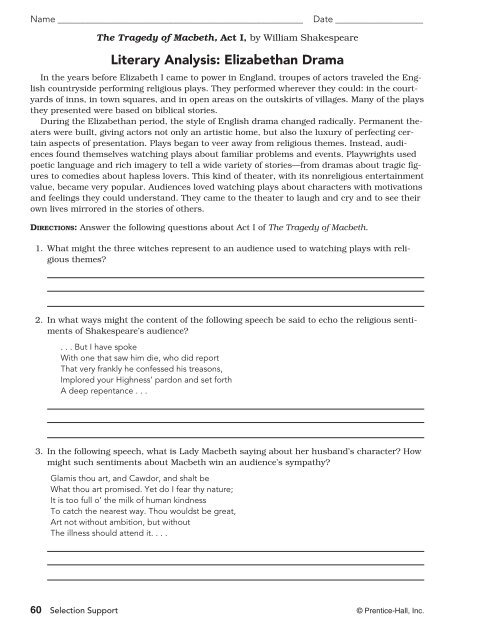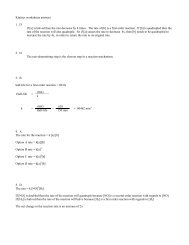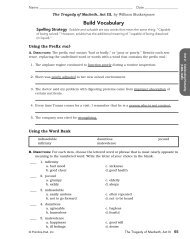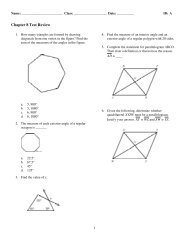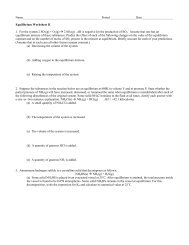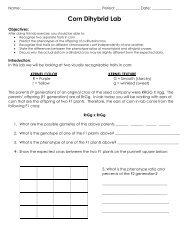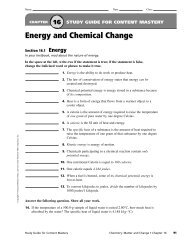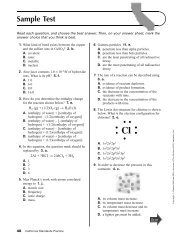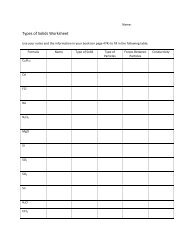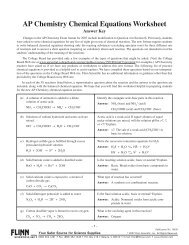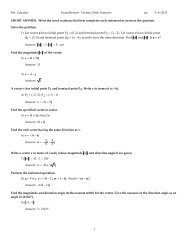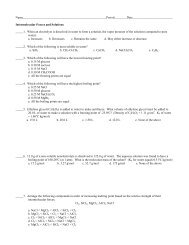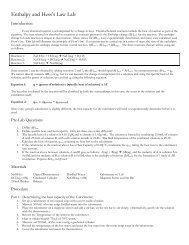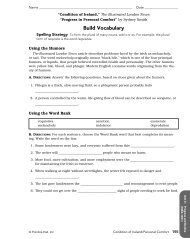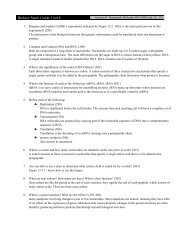Selection Support: Skills Development Workbook: Unit 2: The ...
Selection Support: Skills Development Workbook: Unit 2: The ...
Selection Support: Skills Development Workbook: Unit 2: The ...
You also want an ePaper? Increase the reach of your titles
YUMPU automatically turns print PDFs into web optimized ePapers that Google loves.
Name _____________________________________________________Date ___________________<strong>The</strong> Tragedy of Macbeth, Act I, by William ShakespeareLiterary Analysis: Elizabethan DramaIn the years before Elizabeth I came to power in England, troupes of actors traveled the Englishcountryside performing religious plays. <strong>The</strong>y performed wherever they could: in the courtyardsof inns, in town squares, and in open areas on the outskirts of villages. Many of the playsthey presented were based on biblical stories.During the Elizabethan period, the style of English drama changed radically. Permanent theaterswere built, giving actors not only an artistic home, but also the luxury of perfecting certainaspects of presentation. Plays began to veer away from religious themes. Instead, audiencesfound themselves watching plays about familiar problems and events. Playwrights usedpoetic language and rich imagery to tell a wide variety of stories—from dramas about tragic figuresto comedies about hapless lovers. This kind of theater, with its nonreligious entertainmentvalue, became very popular. Audiences loved watching plays about characters with motivationsand feelings they could understand. <strong>The</strong>y came to the theater to laugh and cry and to see theirown lives mirrored in the stories of others.DIRECTIONS: Answer the following questions about Act I of <strong>The</strong> Tragedy of Macbeth.1. What might the three witches represent to an audience used to watching plays with religiousthemes?2. In what ways might the content of the following speech be said to echo the religious sentimentsof Shakespeare’s audience?. . . But I have spokeWith one that saw him die, who did reportThat very frankly he confessed his treasons,Implored your Highness’ pardon and set forthA deep repentance . . .3. In the following speech, what is Lady Macbeth saying about her husband’s character? Howmight such sentiments about Macbeth win an audience’s sympathy?Glamis thou art, and Cawdor, and shalt beWhat thou art promised. Yet do I fear thy nature;It is too full o’ the milk of human kindnessTo catch the nearest way. Thou wouldst be great,Art not without ambition, but without<strong>The</strong> illness should attend it. . . .60 <strong>Selection</strong> <strong>Support</strong> © Prentice-Hall, Inc.


